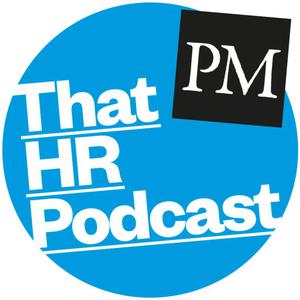
That HR Podcast
People Management
That HR Podcast is brought to you by People Manag…
- 23 minutes 18 secondsWhat if… bad bosses went to prison?
Recent scrutiny of the Post Office Horizon scandal, in particular, has thrown questions around ethical business and good governance into stark relief. So what would happen if the threshold for being convicted for corporate wrongdoing was somehow lowered? What could this look like in practice – and what could be the potential unintended consequences? Academics Alison Taylor and Andrew Kakabadse debate.
Hosted on Acast. See acast.com/privacy for more information.
10 October 2024, 5:00 am - 27 minutes 50 secondsWhat if… everyone refused to come back to the office?
With Barclays Bank, Boots, JD Sports and Dell Technologies among some of the big names to have asked staff to spend a certain percentage of their time at their desks, 2024 has very much been the year of the return-to-office mandate. But what’s the evidence in favour or against? And, with tribunals in this area mounting, what happens if employees just don’t play ball? Academic Gemma Dale and HR leader Tim Mitchell discuss.
Hosted on Acast. See acast.com/privacy for more information.
3 October 2024, 5:00 am - 26 minutes 4 secondsWhat if… your manager’s 20 years younger?
Most would agree that people shouldn’t be promoted into line management roles just because they've been at the company a while or are competent technical performers. Which means there is no reason why a talented young employee, with good EQ, shouldn’t be an older person’s boss. But how does this work in practice? Author Mark Beal and Gen Z manager Lea Karam advise.
Hosted on Acast. See acast.com/privacy for more information.
26 September 2024, 5:00 am - 28 minutesWhat if… AI wrote this episode?
Should you ever send a bot to a meeting in your place? Will the advent of ChatGPT et al eventually mean people lose the skill to write from scratch? Should all employers be racing to hire prompt engineers? Economist Carl Benedikt Frey and HR leader Natalie Sheils give their expert steers on where generative AI is being most usefully applied in the workplace at present – and where it could go next.
Hosted on Acast. See acast.com/privacy for more information.
19 September 2024, 5:00 am - 27 minutes 56 secondsWhat if… the NHS collapsed?
The UK’s National Health Service is in such a parlous state that the new government should declare it a national emergency, a commission of experts recently declared. So what would happen if it were no more? Where would this leave employers? And is it, in fact, time we considered a different healthcare model in the UK anyway? Professor Cary Cooper and policy adviser Charlotte Wickens give their prognoses.
Hosted on Acast. See acast.com/privacy for more information.
12 September 2024, 5:00 am - 29 minutes 26 secondsWhat if… we stopped listening to Silicon Valley?
Once upon a time, if the likes of Google or Netflix were up to something, it wouldn’t be long before other employers followed suit (think stack ranking, radical honesty, ping-pong tables…) But, given the headlines over recent years around issues such as overwork and lack of diversity – to name just two – is it time we looked elsewhere for inspiration? Authors Bruce Daisley and Marissa Orr think it is.
Hosted on Acast. See acast.com/privacy for more information.
5 September 2024, 5:00 am - 24 minutes 45 secondsWhat if… we paid nurses more?
During the Covid-19 lockdowns we all gained a renewed appreciation for frontline workers – healthcare professionals in particular, but also delivery drivers and supermarket staff. So why do we pay some of those doing jobs with arguably the most real-world impact the least? Should we pay them more, or would this lead to unintended economic consequences? Academics Zeynep Ton and Julian Jessop discuss.
Hosted on Acast. See acast.com/privacy for more information.
11 April 2024, 6:30 am - 27 minutes 57 secondsWhat if… everyone was racist?
‘Unconscious bias’ has not enjoyed the best of reputations over the last few years, with much training labelled ineffective, and concerns around the concept being used to justify what is actually fully conscious, overt prejudice. So is it just fact that everyone is biassed on a purely subconscious level? And if so, what should HR and EDI professionals do about it? Academics Keon West and Pragya Agarwal advise.
Hosted on Acast. See acast.com/privacy for more information.
4 April 2024, 6:00 am - 27 minutes 29 secondsWhat if… HR was a regulated profession?
To become a farrier (fitting horseshoes) in the UK, there is a legal requirement to have certain qualifications or experience and to register with a regulatory body before practising. No such requirement exists for HR – but should it? The CIPD’s David D’Souza and ‘father of HR’ Dave Ulrich explore what the advantages – and disadvantages – of more direct, explicit professional oversight might be.
Hosted on Acast. See acast.com/privacy for more information.
28 March 2024, 7:30 am - 26 minutes 43 secondsWhat if… we banned relationships at work?
Rules drawn up by ITV following the Phillip Schofield scandal mean staff must now declare all workplace relationships – including friendships – to the broadcaster or risk losing their jobs. But is such a system workable in practice? And might it have a chilling effect on positive working relations? Organisational psychologist Susan Hetrick and friendship app founder Claudia Gård explore how HR should approach this perennially knotty topic.
Hosted on Acast. See acast.com/privacy for more information.
21 March 2024, 8:00 am - 25 minutes 52 secondsWhat if...there was another pandemic?
Many people’s lives now feel fully ‘back to normal’ several years after Covid-19 lockdowns, almost as if the pandemic never happened... But should the possibility of another deadly virus be more heavily factored into how workplaces organise themselves, and how businesses approach risk management? And what other ‘unexpected’ events should also be on our radars, ask academics Cassandra Berry and David Alexander.
Hosted on Acast. See acast.com/privacy for more information.
14 March 2024, 8:00 am - More Episodes? Get the App
Your feedback is valuable to us. Should you encounter any bugs, glitches, lack of functionality or other problems, please email us on [email protected] or join Moon.FM Telegram Group where you can talk directly to the dev team who are happy to answer any queries.
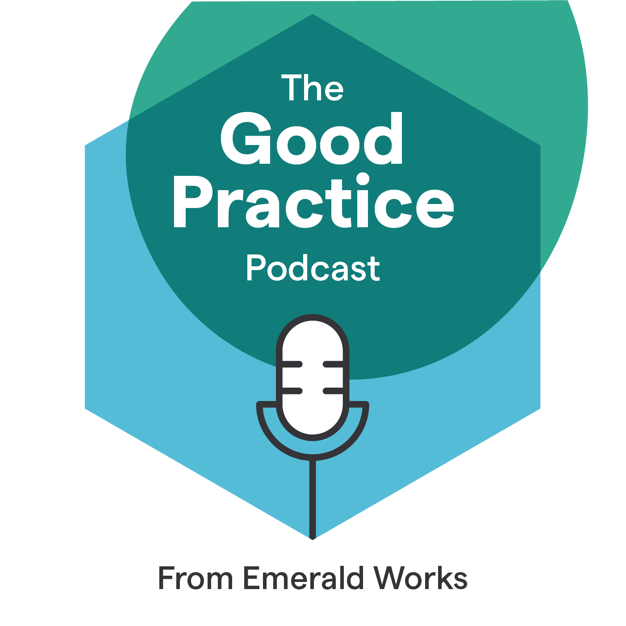 The Good Practice Podcast
The Good Practice Podcast
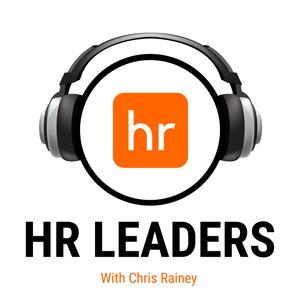 HR Leaders
HR Leaders
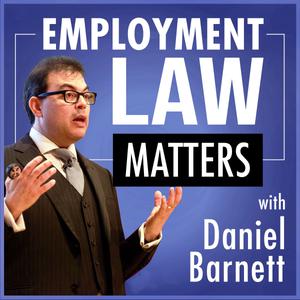 Employment Law Matters
Employment Law Matters
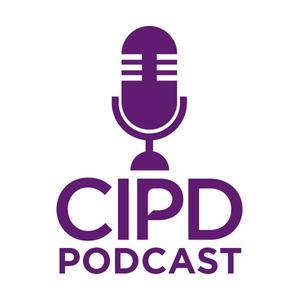 CIPD
CIPD
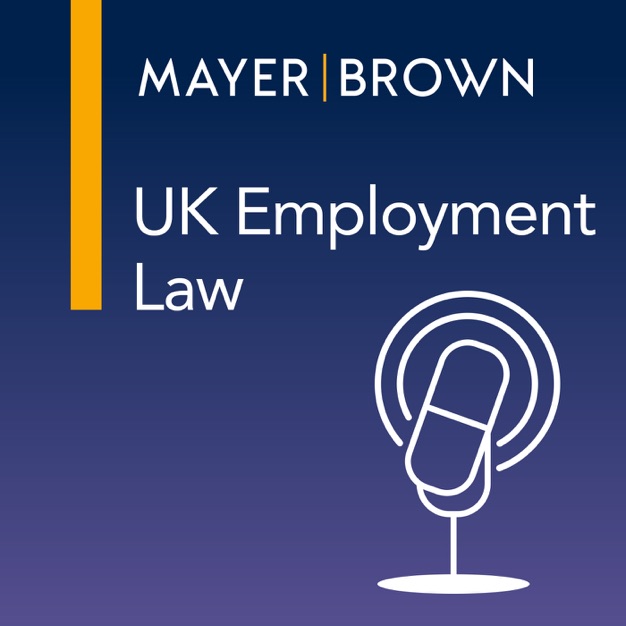 UK Employment Law - The View from Mayer Brown
UK Employment Law - The View from Mayer Brown
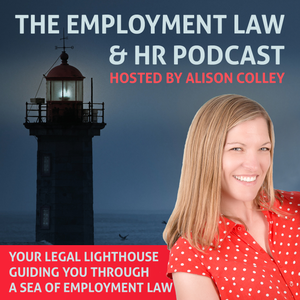 The Employment Law & HR Podcast
The Employment Law & HR Podcast